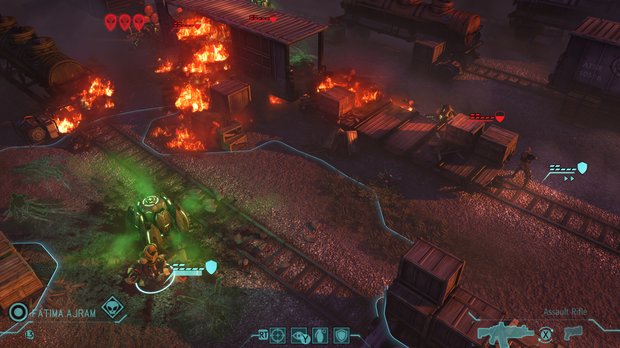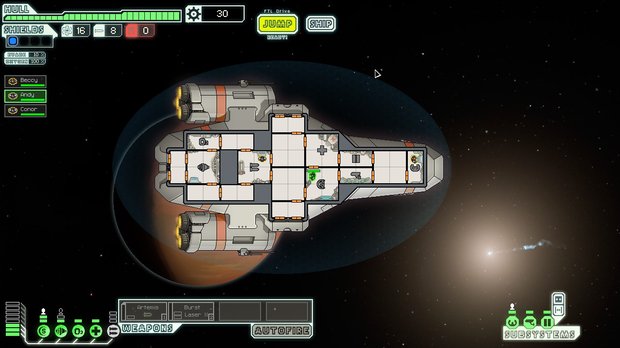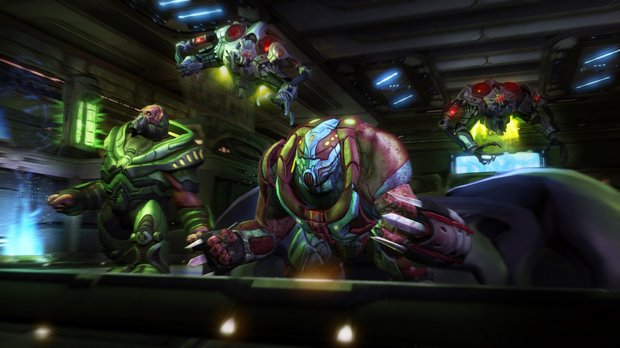Why do we love the games that hate us?
The opportunity for experimentation, challenge, and failure
Eight hours of progress. Gone. I had been so careful, too. Every move during my Ironman game in XCOM: Enemy Unknown had been a calculated one. My shotgun-wielding Assault unit had been leading my slow, inch-by-inch approach to the alien ship while my Sniper hung back on Overwatch, ready to introduce a molten slug to the face of any enemy dumb enough to cross my path. My Support dude stood by with medkits at the ready, and my Heavy--Mr. Abraham "Werewolf" Lincoln (I couldn't have chosen a better nickname if I tried)--was prepped with rocket launcher in-hand.
And one misstep ruined everything.
I moved one tile too far. Aliens surrounded me, and my entire squad was dead within two turns. So was my entire game. Eight hours in, and I lost. "Is that even possible?" I wondered to myself. "What year is this, again?" But it was possible. And after double checking my calendar, I discovered the year was, in fact, 2012.

I knew I'd be risking this exact scenario when I started an Ironman game--but instead of rage quitting XCOM forever, I began another. When I was met with failure once more, I questioned why I was so obsessed with continuing.
The answer, I realized, was because I had been starving for something very particular: games that gave me the freedom to experiment but weren't afraid to let me fail because of my own mistakes.
"Games, at their core, are about solving problems," says Enemy Unknown's producer Garth DeAngelis. "The magic ingredient of games is interactivity, and as game designers, we want that interaction to be compelling and meaningful. The problem should be yours to resolve, and failure should be a real option. But if there isn’t an actual problem to solve, or a challenge to overcome, then what’s the point?"
I've been thinking a lot lately about the games adorning the shelves of my personal collection. There's a lot in there. But whenever I recall my most vivid gaming memories, I have flashbacks of MMO raids; of triumph in Faster Than Light and XCOM; of overcoming the seemingly impossible challenge of Demon's and Dark Souls. But why these? Why is it that out of every gaming memory I can conjure, so few of them include the setpiece-driven big-budget titles that frequently infiltrate our day-to-day discussions of the amazing things games can accomplish?
Sign up to the GamesRadar+ Newsletter
Weekly digests, tales from the communities you love, and more

In part, I think it's got a lot to do with experimentation. My favorite games tend to be ones that give me the tools to accomplish a task while providing me the opportunity to decide how to use them. "I believe [experimentation] is paramount to the experience," says Derek Yu, creator of the roguelike Spelunky. "That's one of the reasons I get so fed up with excessive hand-holding in games. It takes away so much of the enjoyment of experimenting with new mechanics. To me, it's like treating the player like a kid in the worst possible way--with all of the condescension but none of the playfulness."
Yu makes a strong point, and I can't help but think about the sheer volume of games that spoon feed players the solution to every single problem. We become right-trigger mass murderers because that's what a game tells us to do--not because doing so is a choice we've made for ourselves. That's an important distinction.
"I think there’s an ebb and flow to a lot of trends and designs, and for the past five-plus years we’ve been in a sort of hand-holding mode," DeAngelis says. "Many games would have Normal modes that were cakewalks, and there were even some games that literally played the game for the player. I think there was this mentality of extreme accessibility: 'let’s appeal to any and everyone, even if it’s a person not interested in our genre traditionally.' And there was this mindset that everyone should win the game, and losing is bad. So it made the game easier for everyone, even hardcore fans of the genre, you know?"

Oh, we know. Dig through any gaming message board long enough, and you'll find droves of "hardcore gamers" pining for the "old days," reminiscing about tough games (even though some of those were tough only because of bad design). But challenging games definitely exist, and failure plays an important role in the best of them.
"Obviously the core function of failure is consequence--your decisions are only meaningful and interesting if they have a cost, whether that be opportunity cost or the risk of failure," says Jamie Cheng, founder of Klei Entertainment (Mark of the Ninja, Shank). "In the context of Mark of the Ninja, we used failure to define the parameters of what a ninja can do--they are sneaky bastards, but are vulnerable if detected."
Ryan was once the Executive Editor of GamesRadar, before moving into the world of games development. He worked as a Brand Manager at EA, and then at Bethesda Softworks, before moving to 2K. He briefly went back to EA and is now the Director of Global Marketing Strategy at 2K.



